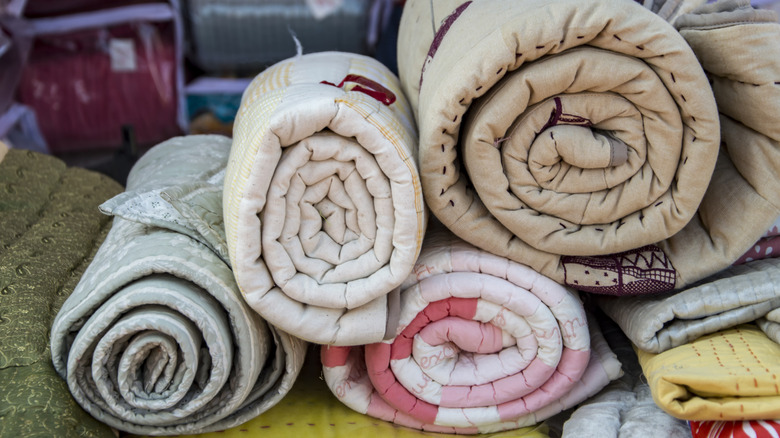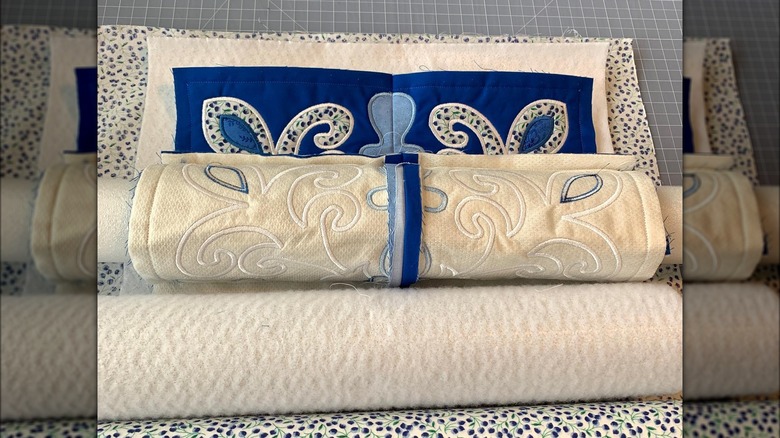Keep Your Sewing Room Organized With The Help Of A Handy Pool Noodle
Proper storage of quilts is vital to preserve their beauty and structure. Improper storage can damage quilts, with issues like stains from wooden or cedar chests or persistent creases from stacking. Furthermore, damp or humid conditions can lead to mold and mildew, weakening fibers and causing discoloration. To maintain your quilt's longevity and appearance, always store it with care. An affordable option for storing your quilt involves using a pool noodle.
For this unique quilt storage solution, you'll need pool noodles, with the quantity depending on the number and size of your quilts. Additional items you'll need include fabric or pillowcases, scissors, and rubber bands or zip ties. Start by cleaning your pool noodle, washing and drying as needed. After it's clean, neatly fold and tightly roll each quilt from one end to the other. Then, slice the pool noodle into segments that are longer than the width of your rolled quilts. Carefully slide each rolled quilt onto a noodle section, pushing it towards the center to stack them. For added protection, you can wrap the stacked quilts and the noodle in fabric or a pillowcase and secure the ends using rubber bands or zip ties. Finally, store your quilt-filled noodles in a clean, dry area, preferably away from direct heat and sunlight.
How pool noodles can help keep quilts in top condition
Utilizing pool noodles provides a gentle, round support, preventing quilts from creasing. Their lightweight feature simplifies quilt storage rearrangement. Not only does the cost-effective nature of pool noodles offer an affordable storage solution, but this innovative approach also maximizes space, especially in tight storage areas. Additionally, pool noodles are readily available and can be repurposed, making them an eco-friendly choice for quilt storage.
Storing quilts requires care to preserve their beauty and longevity. Before storing your quilts, make sure they are clean and completely dry. Refrain from using plastic bags for storage since they can retain moisture, potentially causing mildew on the fabric. To prevent creasing, insert crumpled and acid-free white tissue paper in the folds. Always handle your quilts in a clean environment and refrain from eating or drinking around them, as unintentional spills could result in significant, perhaps irreparable, damage. Lastly, even when quilts are tucked away, inspect them to ensure they remain in top condition and are free from damage.

